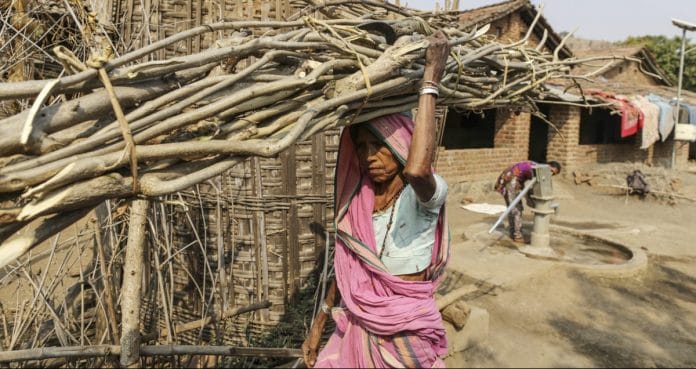
Thank you dear subscribers, we are overwhelmed with your response.
Your Turn is a unique section from ThePrint featuring points of view from its subscribers. If you are a subscriber, have a point of view, please send it to us. If not, do subscribe here: https://theprint.in/
Our Constitution prohibits the discrimination against any citizen on the basis of religion, race, caste, sex or place of birth. Yet there seems to be so much ‘unity in impunity’, cutting across party lines in throwing derogatory remarks at women.
Recently, the Maharashtra state BJP party president Chandrakant Patil, patronisingly advised Member of Parliament Supriya Sule to leave politics and go home to cook. The inept remark publicly made, has rightly been widely condemned as regressive and chauvinistic. It also points at the deep-rooted patriarchal mindset which endorses a different kind of discrimination; one that is based on social and traditional roles and the stereotypes that have come to be associated with them. Cooking, has come to be seen as solely a woman’s job. Worse still, is the perception that it involves no talent, expertise, balance or brains. Following closely on Mr Patil’s heels is NCP’s Dilip Walse Patil who seems to have profoundly concluded that women doing housework and men staying outside is good for marriages and to avoid domestic violence.
People holding public offices or in leadership positions in society are expected to at least portray an image of gender neutrality regardless of their personal beliefs and convictions. Or are such outbursts an expression of insecurity stemming from the threat that today’s woman poses to their hegemonic primacy that they have enjoyed merely by belonging to the male gender? Such utterances, unconsciously (one hopes so!) devalue the worth of women, condescendingly implying that cooking or housework, traditionally assigned to women, is inferior to other jobs . Such sexist undertones are also linked to a bias where a career, predominantly perceived for men, is glorified to be looked at, with pride. Interestingly though, when a man cooks at home or helps with the house work, he is looked at with admiration and respect!
“Familiarity breeds Contempt” goes the old adage and therefore our early childhood familiarities with the aroma of delicacies being cooked in our kitchens by our loving grandmothers and mothers has been taken for granted. Their having not demanded anything in return of this favour ‘dished’ out with so much love and affection and accepting it as a part of their duty , has worsened the perception. They didn’t complain even when some of them had to balance their professional and domestic lives. Them, over the years ,having not put a price on this priceless contribution to home and society has unfortunately led to the fine art of cooking wantonly being used as a tool of condescending attitude and strangely heaping insult on womenfolk.
Ironically, in this era of Master chefs and Michelin stars where culinary skills are lauded for their techniques as a creative art form and ‘ Maa ke haath ka Khaana’ sentiment, back home, is promoting commercial food products, such statements from public figures act as a reality- check. Even today , if a young child expresses her wish to become a professional baker or a cook, euphemised as Boulanger, Patissiere or Chef, she is often met with giggles from her peers and a word of caution by her parents to pursue these only as a hobby and follow the beaten path of ‘hallowed ‘ professions as a career choice.
MP Supriya Sule has taken the offending comments with a lot of grace and has stressed upon everybody’s right as an individual, to say what he wants to. She is aware of the freedom of choice that she can freely exercise, as an individual and an equal citizen of the country. If she ever chooses the kitchen over politics, it would be her own personal decision; if she continues to make her family proud as a home- maker, mother and a successful politician( as tweeted by her husband ), it would again be her own will and entirely of her choosing as a person. No woman must need a patriarch to ‘guide’ her.
While some Indian women are global leaders and powerful voices in diverse fields most women and girls in India do not enjoy many of their rights due to deeply entrenched patriarchal views, norms, traditions and structures.
Unfortunately, when public figures spontaneously bring to the fore such thoughts from the core, in public (the kitchen perhaps would be a better place), they validate the regressive gender stereotype prevalent in the masses. This definitely runs afoul with our laboured efforts at projecting a better global image of an evolving, twenty first century, modern India.
We humans came to call ourselves civilized in our evolutionary journey only when we had a stable home and hearth to feed us. But we seem to have stopped there and not progressed any further, in some society pockets still.
Food served with a bill is rated higher than food served with selfless love it seems!
These pieces are being published as they have been received – they have not been edited/fact-checked by ThePrint.
Also read: Mapping unpaid women’s work is India’s next challenge in its vexed jobs scenario


COMMENTS